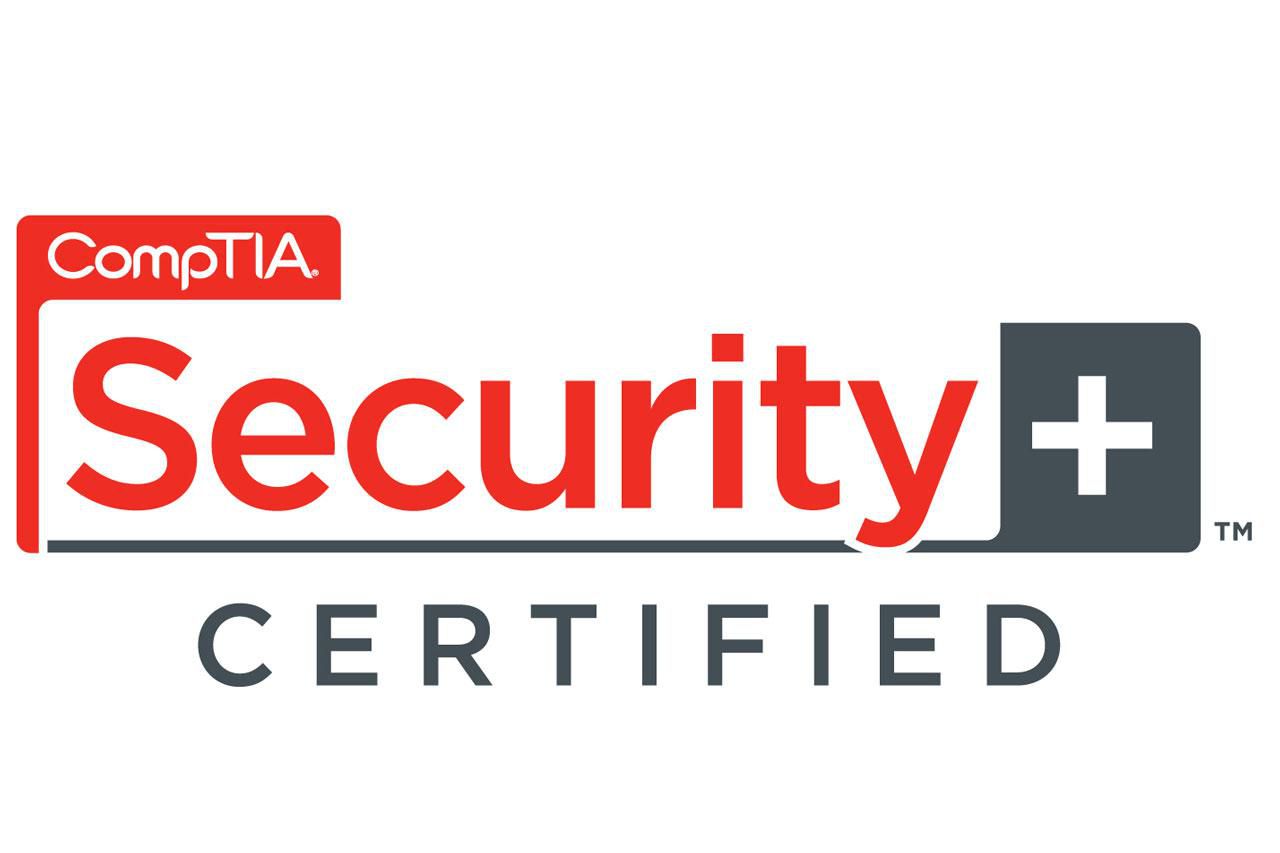Did you know that companies are increasingly hiring cybersecurity job applicants who do not have college degrees but do have relevant certificates? The field is growing so fast that there simply aren’t enough degree-holding candidates to fill the positions. This means that if you have the right certificates, you have a great chance of getting hired for a cybersecurity job.
Key Takeaways:
- Cybersecurity job opportunities exist for candidates with relevant certificates, even without a college degree.
- Leading tech companies like Google and Apple have removed four-year degree requirements for many jobs.
- The cybersecurity field is growing rapidly, creating a demand for workers with cybersecurity certificates.
- Certifications demonstrate knowledge and desire for the field, and skills are often prioritized over degrees by hiring managers.
- The cybersecurity field is not regulated, allowing companies to hire candidates with certificates instead of degrees.
Why Choose a Cybersecurity Certificate?
A cybersecurity certificate can open doors to numerous opportunities in the rapidly expanding cybersecurity industry. With businesses becoming increasingly reliant on digital technology, the demand for cybersecurity professionals is on the rise. The scope of cybersecurity is vast, with positions available in various industries such as healthcare, finance, government, and education.
What sets a cybersecurity certificate apart is its ability to provide career growth and advancement. From being a cybersecurity consultant to an analyst, or even climbing up the ladder to leadership roles, the options are extensive. With a long and interesting career path, this field offers high salaries and job stability, making it an attractive choice for those seeking a rewarding and challenging career.
The cybersecurity industry is continuously growing, presenting a multitude of opportunities for skilled professionals. As businesses navigate the evolving digital landscape, they require experts who can protect their sensitive information and defend against cyber threats. By earning a cybersecurity certificate, individuals position themselves for success in a field that shows no signs of slowing down.
Exploring Career Paths in the Cybersecurity Industry
The cybersecurity industry encompasses a wide range of job positions and specializations. Let’s explore some of the popular roles available:
- Cybersecurity Consultant: Experts who assess and enhance an organization’s cybersecurity systems to mitigate risks.
- Cybersecurity Analyst: Professionals who specialize in network and IT infrastructure security, analyzing potential cybersecurity breaches.
- Cybersecurity Engineer: Engineers responsible for identifying vulnerabilities and developing solutions to safeguard against cyber threats.
These are just a few examples, but the possibilities are vast. The cybersecurity industry offers a wide range of career options, allowing individuals to find their niche and excel in their chosen field.
A Growing Industry with Promising Prospects
The cybersecurity industry is experiencing significant growth, driven by the constant evolution of technology and the increasing frequency and sophistication of cyberattacks. With advancements in interconnected devices and cloud computing, the need for cybersecurity professionals continues to expand.
According to industry projections, the job market for cybersecurity is expected to grow by 28% from 2016 to 2026. This rapid growth presents abundant opportunities for individuals seeking a career in cybersecurity. Moreover, the industry offers job security and competitive salaries, making it an appealing choice for those looking for a stable and well-compensated profession.
“In the rapidly evolving digital landscape, cybersecurity professionals are essential in protecting sensitive information and ensuring the privacy and security of individuals and organizations.”
With the right skills, qualifications, and certifications, individuals can forge a successful and fulfilling career in the dynamic field of cybersecurity.
Benefits of a Cybersecurity Certificate
Earning a cybersecurity certificate provides several benefits for individuals looking to enter the field. The certificate validates knowledge and skills in cybersecurity, demonstrating a commitment to the industry. With the expected growth of the cybersecurity industry, obtaining a certificate can lead to high-paying job opportunities.
A cybersecurity certificate also offers the opportunity to gain hands-on experience and practical skills that are highly valuable to employers. Certification programs cover a range of topics, including network security, compliance, operational security, and threats and vulnerabilities. By completing these programs, individuals acquire the necessary expertise to qualify for various cybersecurity jobs, such as:
- Information Security Analysts: These professionals assess and implement security measures to protect an organization’s computer networks and systems.
- Network Security Engineers: They design, build, and maintain secure information networks to safeguard an organization’s data and prevent unauthorized access.
- Computer Forensics Investigators: These experts collect, analyze, and interpret digital evidence to investigate and prevent cybercrimes.
- Cybersecurity Consultants: They provide strategic guidance and solutions to improve an organization’s overall cybersecurity posture.
Certification programs not only equip individuals with the necessary knowledge and skills for these roles but also allow them to gain practical experience. This practical experience is highly sought after by employers, as it demonstrates an individual’s ability to apply their cybersecurity skills in real-world scenarios. Thus, earning a cybersecurity certificate can significantly enhance career prospects in the industry.
“Earning a cybersecurity certificate showcases commitment, validates knowledge & skills, and opens doors to high-paying job opportunities.”
Exploring Cybersecurity Certification Programs
For individuals looking to start or advance their careers in the cybersecurity field, there are several certification programs available. These programs offer comprehensive training in various aspects of cybersecurity, equipping individuals with the necessary skills and knowledge to succeed in the industry.
Notable cybersecurity certification programs include:
- ISC2 SSCP
- Certified Ethical Hacker (CEH)
- CompTIA Security+
- CompTIA A+
Each program focuses on specific areas of cybersecurity, preparing individuals for different roles within the industry. By completing these programs, individuals gain expertise in hardware and software fundamentals, digital forensics, network security, and more.
One of the advantages of cybersecurity certification programs is their flexibility. Many programs can be completed online, allowing busy professionals to pursue their certifications at their own pace and schedule.
| Certification Program | Focused Areas |
|---|---|
| ISC2 SSCP | Network Security, Identity Access Management, Risk Identification, Incident Response, and Recovery |
| Certified Ethical Hacker (CEH) | Ethical Hacking, Vulnerability Assessment, and Penetration Testing |
| CompTIA Security+ | Threats, Vulnerabilities, Intrusion Detection, Incident Response, and Cryptography |
| CompTIA A+ | Hardware and Software Fundamentals, Troubleshooting, Networking, and Mobile Devices |
Obtaining a cybersecurity certification not only enhances an individual’s knowledge and skills in the field but also increases their marketability and job prospects. These certifications validate their expertise and demonstrate their commitment to the cybersecurity profession.
Completing a cybersecurity certification program is a significant step towards building a successful career in the field, as it equips individuals with the necessary skills and knowledge to effectively tackle cybersecurity challenges and contribute to the protection of organizations and individuals from cyber threats.
Quote:
“Cybersecurity certification programs provide individuals with the skills and knowledge needed to excel in the field, equipping them with the necessary expertise to protect organizations from cyber threats.”
Continuing professional development in the cybersecurity field is crucial, as it ensures that professionals stay updated with the latest trends and advancements in the industry. By regularly updating their skills and knowledge, individuals can remain competitive and position themselves for career growth and advancement.
Career Opportunities in Cybersecurity with a Certificate
A cybersecurity certificate opens up a range of career opportunities in the industry. With the increasing demand for skilled professionals to protect digital assets, companies are actively seeking cybersecurity specialists. Here are some prominent job roles for individuals with a cybersecurity certificate:
- Cybersecurity Consultants: These professionals assess an organization’s cybersecurity systems, identify vulnerabilities, and develop strategies to enhance security.
- Cybersecurity Analysts: Specializing in network and IT infrastructure security, analysts monitor and detect potential cyber threats, responding swiftly to mitigate risks.
- Cybersecurity Engineers: Engineers are responsible for designing and implementing robust cybersecurity solutions to defend against cybercrime, ensuring systems are secure and resilient.
- Cybersecurity Managers: As the field grows, the need for cybersecurity managers to oversee teams and develop cybersecurity plans and policies becomes increasingly important.
These job roles offer diverse opportunities to contribute to the protection of sensitive information and safeguard digital ecosystems.
Cybersecurity Salary
Salary is an essential consideration when exploring career options. Entry-level cybersecurity positions offer competitive compensation, with an average salary of around $67,000 per year. However, as individuals gain experience and advance in their careers, the potential for higher salaries significantly increases. Factors such as geographic location, industry, and level of expertise also contribute to salary variations.
It’s important to note that these figures are approximate and can vary based on several factors. Nevertheless, a career in cybersecurity is financially rewarding, especially for those with the right skills and certifications.
Having a cybersecurity certificate not only opens doors to exciting career opportunities but also provides the potential for growth and advancement in the field. Stay tuned as we explore the advantages of hiring candidates with cybersecurity certificates in the next section. But before that, let’s take a moment to reflect on the benefits that a cybersecurity certificate can bring to individuals looking to enter the industry.
Advantages of Hiring Candidates with Cybersecurity Certificates
Employers in the cybersecurity field recognize the value of hiring candidates with cybersecurity certificates. The high demand for cybersecurity professionals makes it necessary for companies to consider candidates with certificates instead of degrees. Certifications demonstrate knowledge and skills in the field, and employers recognize that real-world experience gained through certificate programs can be just as valuable as a degree. The cybersecurity industry is not regulated, allowing companies the flexibility to hire individuals based on their skills and qualifications rather than their educational background. By hiring candidates with certificates, companies can benefit from a diverse pool of qualified professionals and fill the growing demand for cybersecurity positions.
The Benefits of Hiring Cybersecurity Professionals with Certificates
- Highly skilled individuals: Candidates with cybersecurity certificates have undergone specialized training and possess the necessary skills to protect organizations from cyber threats. Their knowledge and expertise allow them to implement effective security measures.
- In-demand skills: With the increasing complexity of cyber attacks, hiring professionals with up-to-date cybersecurity skills is crucial. Certificate holders have demonstrated proficiency in areas such as network security, incident response, and ethical hacking.
- Cost-effective hiring: Hiring candidates with cybersecurity certificates can be more cost-effective for organizations. These professionals are often more focused and trained in specific cybersecurity areas, reducing the need for extensive on-the-job training.
- Wider talent pool: By considering candidates with certificates, employers can tap into a broader talent pool. This inclusivity allows organizations to attract individuals from diverse backgrounds who may not have pursued traditional degree programs but possess valuable cybersecurity skills.
- Meeting compliance requirements: Many cybersecurity certifications align with industry standards and compliance regulations. Hiring professionals with these certificates ensures that organizations stay compliant and adhere to the necessary security protocols.
“Hiring professionals with cybersecurity certificates is a strategic decision for organizations. These individuals bring specialized skills and training that can help protect companies from cyber threats and ensure data security.” – John Smith, Chief Information Security Officer at XYZ Corporation
Overall, hiring candidates with cybersecurity certificates offers numerous advantages for organizations. From specialized skills to meeting compliance requirements, these professionals can contribute to the development of a robust cybersecurity framework, safeguarding organizations’ valuable assets and sensitive information.

Finding a Cybersecurity Certificate Program
When it comes to embarking on a cybersecurity career, finding the right certificate program is crucial. A well-rounded and accredited program can provide the necessary training and knowledge to excel in the field. Here are some key factors to consider when searching for a cybersecurity certificate program:
- Accreditation: Look for programs that are accredited by reputable organizations. Accreditation ensures that the program meets recognized standards of quality and is recognized by potential employers.
- Comprehensive Training: A good cybersecurity certificate program should cover a wide range of topics, including network security, system administration, cybersecurity fundamentals, and more. The program should provide both theoretical knowledge and practical skills.
- Delivery Method: Consider whether you prefer an in-person or online program. Online cybersecurity courses offer flexibility and convenience, allowing you to learn at your own pace.
- Curriculum: Review the curriculum to ensure it aligns with your career goals and interests. Look for programs that offer specialized tracks or concentrations that match your desired area of expertise.
- Reputation: Research the reputation of the institution or organization offering the program. Look for reviews and testimonials from previous students to ensure the program is highly regarded in the industry.
By carefully researching and comparing different programs, you can find the cybersecurity certificate program that best suits your needs and career goals. The right program can provide you with the knowledge, skills, and credentials needed to thrive in the rapidly growing field of cybersecurity.
The Importance of Hands-On Experience in Cybersecurity
Hands-on experience is a crucial component for aspiring cybersecurity professionals. It provides them with the opportunity to apply their knowledge and develop practical skills that are highly valued in the industry. By completing a cybersecurity certificate program that includes hands-on training, individuals can significantly enhance their job prospects and prepare themselves for the challenges they will face in their careers.
Practical experience in cybersecurity offers several benefits. Firstly, it provides individuals with a deeper understanding of cybersecurity concepts and principles. By working on real-world challenges, they can experience firsthand how different security measures are applied and how they can be effectively implemented to protect against cyber threats.
Furthermore, hands-on experience allows individuals to work with actual tools and technologies used in the cybersecurity field. This exposure enables them to become familiar with industry-standard software, hardware, and network systems, enhancing their practical skills and making them more proficient in handling cybersecurity tasks.
Through hands-on experience, individuals also develop critical problem-solving and critical thinking skills. They learn how to analyze complex cybersecurity issues, identify vulnerabilities, and develop effective strategies to address them. This practical problem-solving ability is highly sought after by employers in the industry and can greatly contribute to a successful career in cybersecurity.
Opportunities for hands-on experience can be found through various avenues such as internships, industry collaborations, and practical projects within cybersecurity certificate programs. Cybersecurity internships, in particular, offer valuable real-world experience and a chance to work alongside experienced professionals in the field. These internships provide individuals with the opportunity to apply their theoretical knowledge in a practical setting while gaining industry experience and building their professional network.
Overall, hands-on experience plays a vital role in preparing individuals for a successful career in cybersecurity. It allows them to develop practical skills, gain industry experience, and enhance their problem-solving abilities. By actively seeking opportunities for hands-on experience, aspiring cybersecurity professionals can position themselves for success in this rapidly growing field.
Advancing Your Career in Cybersecurity
Once you have obtained a cybersecurity certificate, there are various paths to advance your career in the field. Continued professional development, such as earning additional certifications or completing advanced cybersecurity courses, demonstrates your commitment to ongoing learning and skill development. Networking within the cybersecurity industry and joining professional associations can provide valuable connections and open doors to new opportunities. As you gain experience and expertise, you can aim for leadership roles in cybersecurity, such as cybersecurity managers or chief cybersecurity officers, where you can make strategic decisions and drive the security posture of organizations.
Staying updated with the latest trends and best practices in the cybersecurity field is essential to remain competitive and continue growing professionally. Embrace a mindset of continuous learning, staying informed about emerging threats and technologies. Attend industry conferences, participate in webinars, and engage in online forums to stay connected with cybersecurity professionals and expand your knowledge base. Develop a strong professional network by actively engaging with industry leaders, both online and offline, as they can provide valuable insights and mentorship.
Here are some key steps to advance your career in cybersecurity:
- Earn additional certifications: Expand your skills and knowledge by pursuing advanced certifications in specific cybersecurity domains. Some popular certifications include Certified Information Systems Security Professional (CISSP), Certified Ethical Hacker (CEH), and Certified Information Security Manager (CISM).
- Take advanced cybersecurity courses: Enroll in specialized courses that delve deeper into topics such as penetration testing, network security, or cloud security. These courses can help you develop expertise in niche areas and enhance your problem-solving skills.
- Build a strong professional network: Network with cybersecurity professionals through online platforms, industry events, and local meetups. Engage in discussions, share your knowledge, and seek advice from experienced professionals. Building meaningful connections can open doors to new job opportunities and collaborations.
- Aim for leadership roles: As you gain experience and expertise, consider pursuing leadership roles in cybersecurity. Positions such as cybersecurity manager or chief cybersecurity officer allow you to shape cybersecurity strategies, lead teams, and make a significant impact on organizational security.
- Stay updated with industry trends: Follow cybersecurity news, subscribe to industry newsletters, and read relevant publications to stay informed about the latest threats, technologies, and best practices. Continuously educating yourself ensures that your skills and knowledge remain current in this fast-paced field.
“The only way to do great work is to love what you do.” – Steve Jobs
By continuously investing in your professional development and remaining engaged in the cybersecurity community, you can position yourself for long-term success in this dynamic and rewarding field. Embrace opportunities for growth, stay curious, and never stop learning.
Advancement Opportunities in Cybersecurity
| Position | Description | Required Skills |
|---|---|---|
| Cybersecurity Manager | Oversee cybersecurity operations, develop security strategies, and lead a team of security professionals. | Strong leadership, communication, risk management, and strategic planning skills. |
| Chief Cybersecurity Officer | Set the vision and direction for an organization’s cybersecurity program, ensuring the protection of sensitive data and systems. | Extensive knowledge of cybersecurity best practices, risk management, and regulatory compliance. |
| Cybersecurity Consultant | Provide expert advice to organizations on cybersecurity measures, conduct security assessments, and make recommendations to enhance security posture. | Strong analytical, problem-solving, and communication skills. |
| Security Architect | Design and implement secure systems and networks, ensuring they meet industry standards and protect against cyber threats. | Deep understanding of network security, cloud security, and system architecture. |
Job Market Outlook for Cybersecurity Professionals
The job market for cybersecurity professionals is experiencing rapid growth and offers promising prospects for the future. With an increasing reliance on technology in various industries, the need for cybersecurity experts is more critical than ever.
According to projections, the job market for cybersecurity professionals is expected to grow by 28% from 2016 to 2026. This substantial growth is driven by the constant threat of cyberattacks and the expansion of interconnected devices and cloud computing.
The rise in cyber threats has created a demand for highly skilled cybersecurity professionals who can protect sensitive information, secure networks, and mitigate potential risks. As technology continues to evolve, so do the challenges and demands of cybersecurity, making it a dynamic and fulfilling field to pursue a career in.
By acquiring the right skills, qualifications, and certifications, individuals can position themselves for success in the cybersecurity job market. The Bureau of Labor Statistics predicts a bright future for cybersecurity careers, with a strong job growth rate in the coming years.
The Growth of Cybersecurity Job Opportunities
The growth of interconnected devices and cloud computing has created a surge in cybersecurity job opportunities across various industries. From healthcare and finance to government and education, organizations are actively seeking cybersecurity professionals to safeguard their systems and data.
As cyber threats become more sophisticated, companies are willing to invest in cybersecurity to protect their assets and maintain customer trust. This increased focus on cybersecurity has led to a surge in job openings, providing ample career prospects for individuals with the right expertise.
With the right qualifications and certifications, individuals can pursue a range of cybersecurity career paths, such as cybersecurity consultants, analysts, engineers, and managers. The field offers diverse and rewarding opportunities that align with different interests and skill sets.
The Future of Cybersecurity Careers
The future of cybersecurity careers looks promising, with continued growth and advancements in technology. As organizations increasingly prioritize digital security, the demand for cybersecurity professionals will continue to rise.
As technology evolves, so do the tactics and methods employed by cybercriminals. This ongoing battle between cybersecurity professionals and hackers ensures a constant need for skilled individuals who can protect networks, systems, and data.
Cybersecurity professionals who stay up-to-date with the latest industry trends, continuously enhance their skills through advanced certifications and training, and adapt to emerging threats will be well-positioned for career growth and advancement.
Furthermore, the financial rewards of a career in cybersecurity are noteworthy. The average salary for cybersecurity professionals is competitive, with ample opportunities for growth and higher earning potential as individuals gain experience and progress in their careers.
In summary, the job market for cybersecurity professionals is thriving, with a projected growth rate that reflects the increasing demand for skilled experts in the field. By acquiring the necessary skills and certifications, individuals can enjoy a lucrative and fulfilling career while making a significant impact in protecting organizations from cyber threats.
The Importance of Values-Based Cybersecurity Education
A values-based cybersecurity education is crucial for professionals entering the field. In the ever-evolving landscape of cybersecurity, ethical practices are of utmost importance. Cybersecurity professionals bear the responsibility of safeguarding sensitive information, ensuring the privacy and security of individuals and organizations. Therefore, upholding ethical principles is essential to maintain trust and integrity.
A values-based education in cybersecurity focuses on the ethical considerations and responsibilities that professionals must uphold. It emphasizes the importance of privacy, trust, and integrity in every aspect of their work. By instilling these values, professionals are better equipped to make ethical decisions, handle sensitive information responsibly, and mitigate potential risks and vulnerabilities in a conscientious manner.
Professionals trained in values-based cybersecurity bring an added layer of security to their work. They understand not only the technical aspects of cybersecurity but also the ethical implications of their actions. This comprehensive approach ensures that cybersecurity practices align with the highest standards of professionalism and prioritize the well-being of individuals and organizations.
By integrating values-based cybersecurity education into industry practices, we can foster a culture of ethical behavior and responsible digital citizenship. This is crucial as cybersecurity professionals play a critical role in protecting against cyber threats and maintaining the integrity of digital systems.
“Ethics must be at the core of cybersecurity education, as it sets the foundation for responsible and impactful practices in the field.”
Conclusion
In conclusion, obtaining a cybersecurity certificate can be a crucial step in building a successful career in the field. With the high demand for cybersecurity professionals and the increasing flexibility in hiring candidates with certificates, there are numerous job opportunities available. A cybersecurity certificate not only demonstrates your knowledge and skills in the industry but also provides valuable hands-on experience.
By obtaining a cybersecurity certificate, you can prepare yourself for various roles such as consultants, analysts, and engineers. Continued professional development and staying updated with the latest trends and best practices are essential for career advancement in cybersecurity. It is crucial to embrace a values-based cybersecurity education, which emphasizes ethical practices, privacy, trust, and integrity in the field.
The future of cybersecurity careers is promising, with significant job growth projected as technology continues to evolve. By choosing a career in cybersecurity and obtaining a certificate, you can contribute to a secure and trusted digital environment while enjoying job stability and potential for growth. So, take the first step towards an exciting and rewarding career in cybersecurity by earning a cybersecurity certificate today!











